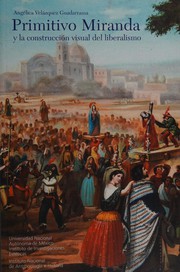
Primitivo Miranda y la construcción visual del liberalismo
By Angélica Velázquez Guadarrama
Subjects: Criticism and interpretation, Mexican Painting, Pictorial works, In art, Social life and customs, History and criticism, Mexican Genre painting
Description: During the Mexican "Reforma War" in 1858 artist Primitivo Miranda (b. Mexico 1822-1897) completed two paintings: "Semana Santa en Cuautitlán" (Museo Nacional de Historia, INAH) and "Soldados de la Reforma en una venta" (Museo Nacional de las Intervenciones, INAH), while both have been classified under "Popular art", the historiography of art has overlooked their political and symbolic potential, as well as their aesthetic quality. The author analyzes these paintings from a political and historic perspective and proposes a study within a social and artistic context revealing the 19th century position of Liberalism concerning religious practices and the idea of nationalism as a State project. "Throughout the study it can be discover in the paintings of Miranda a critical sense and a liberal political posture, while at the same time [the author] examines the relationships of the painter with the academic institution Academia de San Carlos, the conservative elite and the emerging liberals. As none of these painting were presented in any of the exhibitions organized by the Academia de San Carlos, they were not the subject of critical studies at the time and perhaps that is why they were ignored in the art history of the Mexican 19th century. This text remedies such negligence and rescues the figure an artist, peculiar for his interpretations of the historic and political realities of his time." (Our translation) --P. 12.
Comments
You must log in to leave comments.